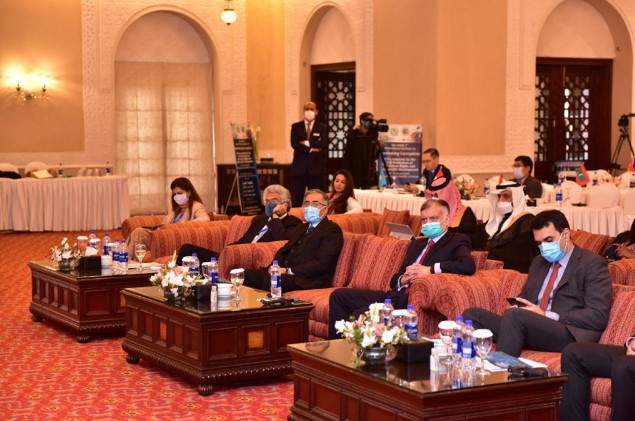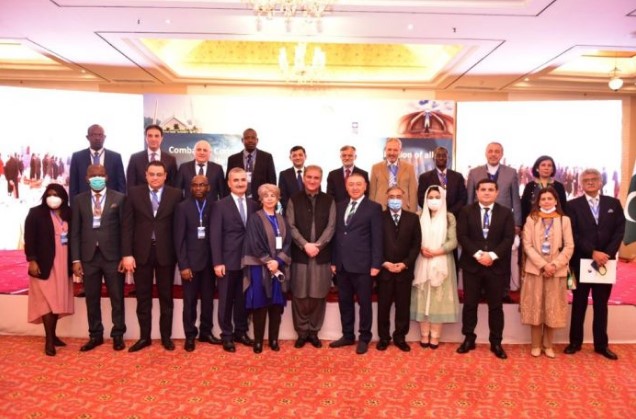‘Islamabad Declaration’ envisages corruption as major impediment to development

Islamabad: Participants in an international seminar on Saturday adopted ‘Islamabad Declaration’ recognizing corruption as a major impediment to sustainable development.
The declaration stressed upon the need for strengthening of existing national, regional and international legal and human rights mechanisms/institutions to combat corruption and in building resilient systems.
The two-day International Seminar on the theme of “Combating Corruption – A Prerequisite for the full enjoyment of all Human Rights and Sustainable Development” was organized by the Government of Pakistan and the Independent Permanent Human Rights Commission (IPHRC) of the Organization of Islamic Cooperation (OIC), in collaboration with the Office of the High Commissioner for Human Rights (OHCHR), United Nations Office on Drugs and Crime (UNODC), and United Nations Development Programme (UNDP).

Based on deliberations, the participants adopted ‘Islamabad Declaration on Combating Corruption for the full realization of all Human Rights and Sustainable Development’.
The declaration underlined the need for improving transnational cooperation for the prevention, detection, investigation and prosecution of corrupt offences, as well as in the recovery and return of confiscated assets.
“Following a people-centric and human rights-based approach in combating corruption, enhancing the capacity of the judiciary, prosecution service and law enforcement agencies to combat corruption; promotion of civic engagement and social accountability, establishing of an OIC intergovernmental working group (IGWG) to actively explore innovative ideas and initiatives under the OIC and the UN auspices for mutual legal assistance on issues of corruption and stolen legal assets,” the declaration further said.
The declaration also noted the need to integrating the role of technology in promoting increased transparency, accountability, accessibility and citizen participation and introduction of strong anti-corruption legislations to end impunity and recovery of stolen assets.
The international seminar was part of Pakistan’s persistent efforts to strengthen the international framework against corruption, recovery of stolen assets, promotion and protection of all human rights, and achievement of inclusive and sustainable development.
The international seminar was attended by more than 200 international and national stakeholders including government officials, OIC member and observer states, IPHRC Commissioners, members of the OIC Secretariat and relevant United Nations agencies, practitioners, academia, civil society and media representatives.
Foreign Minister Makhdoom Shah Mahmood Qureshi had delivered the keynote address at the inaugural session and articulated Pakistan’s approach towards combatting the scourge of corruption and illicit financial flows as well as ensuring the protection of human rights, in line with the vision of Prime Minister Imran Khan.
He also called on the OIC countries to explore innovative ideas and initiatives for strengthening the international framework to prevent corruption – which is an essential prerequisite for sustainable development.

Remarks at the inaugural session were also delivered by the UN High Commissioner for Human Rights (pre-recorded video statement), Assistant Secretary-General of OIC, and IPHRC Chairperson.
The keynote address during the closing segment was delivered by Minister for Human Rights Dr. Shireen M. Mazari.
‘Islamabad Declaration’ envisages corruption as major impediment to development
A panel of international experts shared best practices and highlighted important aspects regarding the theme of the seminar.
The OIC member states and other participants took active part in the discussions.





